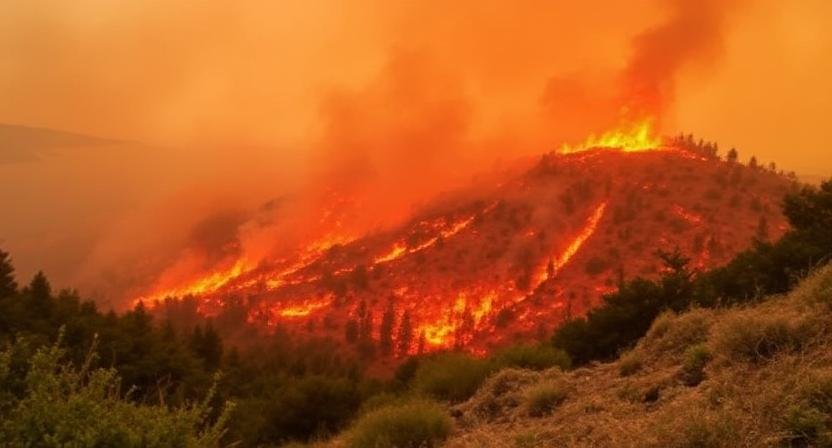Tips & Advices
7 common travel insurance mistakes – and how to avoid them

Booking the cheapest quote can leave you brutally exposed. Emergency medical evacuation, for instance, can set you back Dh100,000 ($27,000), Chauhan says, so on an entry-level policy, you’ll need to pay the difference.
6. Not understanding how claims actually work
Buying your travel insurance policy is just the start. Making a claim is where things get tricky. Internationally, claim denials were up by a third (33 per cent) last year, because travellers often miss document deadlines or don’t submit the right paperwork.
If something is stolen or lost, for example, you usually have 24 to 48 hours to report it to the local police, says Niraj Mamtora, Director at Forum Insurance. “Some people try to wait until they get home or think a hotel report is enough, but that won’t meet the conditions of most policies. You need a formal report from the local authorities, ideally with a case number and location. Missing that step is one of the most common reasons we see valid claims denied.”
To avoid rejection, you’ll want to obtain and upload all your receipts, medical reports, police FIRs and boarding passes into your insurer’s app, and file within the typical 30-day window.
“Additionally, it’s critical to include a complete and accurate explanation of relevant events,” says Allianz’s Surana. “Incomplete claims or missing signatures can delay or even invalidate your reimbursement.”
7. Extending your trip into unplanned territory
The hassle around documentation and bookings often causes travellers to book for just part of the trip.
As Mamtora says, travellers routinely make day trips to non-covered countries, such as on a bus trip from Croatia to Montenegro, which isn’t part of the EU. “Your insurance can become void the moment you step over the border. Even if you’re only gone for a few hours, if something happens, you could be completely uncovered. So, check which countries are listed and whether regional trips are included,” he says.
Others don’t take out coverage for the full duration, such as for layovers or extended stays. Consequently, you can face gaps in protection, Chauhan says.
She talks of one case where a traveller was hospitalised in transit during a stopover, but the insurance was active only for the final destination. “The claim was declined entirely,” she says. “Travel insurance should be viewed as a safety net, not a checkbox.”
Tips & Advices
Domestic travel insurance claims outpace international payouts in Australia – Insurance Business America

Domestic travel insurance claims outpace international payouts in Australia Insurance Business America
Source link
Tips & Advices
UK Issues New Travel Advisory For Turkey With Urgent Alert On Border Security And Strict Entry Requirements

Friday, August 1, 2025
The UK has issued a new travel advisory for Turkey in response to escalating security concerns near the Syria-Turkey border and the enforcement of strict entry and passport regulations that could impact British travelers. The advisory includes a clear warning to avoid travel within 10 kilometers of the Syrian border due to ongoing conflict and terrorism threats, while also emphasizing the importance of meeting Turkey’s strict passport validity rules and visa-free stay limits. With the added risks of summer wildfires and potential invalidation of travel insurance for those ignoring official guidance, the UK government urges all travelers to review the updated requirements before departure.
UK Issues New Travel Advisory for Turkey With Urgent Alert on Border Security and Strict Entry Requirements
The United Kingdom has issued a new travel advisory for Turkey, urging British citizens to exercise heightened caution when visiting the country, especially near its volatile border with Syria and during the high-risk summer wildfire season. The Foreign, Commonwealth & Development Office (FCDO) has updated its guidance to include a strong warning on regional security near conflict zones, strict entry and passport requirements, insurance concerns, and critical information for families traveling with children.
FCDO Strongly Advises Against Travel Near the Syria-Turkey Border
At the heart of the advisory is a clear and unequivocal warning: the FCDO advises against all travel to within 10 kilometers of the Turkey-Syria border. This area remains highly volatile due to ongoing military operations, unrest, and the persistent threat of terrorist activity.
Although popular Turkish tourist cities such as Istanbul, Antalya, and Bodrum remain unaffected, the southeast border region is considered dangerous and unpredictable. The UK government warns that venturing into this zone not only poses a serious safety threat but may also invalidate your travel insurance policy if the advice is ignored.
Summer Wildfires Add to Risk Factors
In addition to conflict zones, the advisory highlights the increased frequency and intensity of wildfires across Turkey during the summer season. These fires can spread rapidly, particularly in forested and coastal areas that are popular with tourists.
Travelers are urged to monitor local media, follow the instructions of local authorities, and stay informed through hotel staff or accommodation providers. The FCDO emphasizes that wildfires can lead to sudden road closures, evacuations, and disruptions to transport and travel plans. Holidaymakers should remain flexible and have emergency contact numbers readily accessible in case of unexpected evacuation orders.
Insurance Warning: Your Policy May Be Invalid
One of the most critical points in the advisory concerns travel insurance coverage. The FCDO explicitly states that your travel insurance may be rendered invalid if you travel against its advice, particularly into regions like the Syrian border zone.
British citizens are encouraged to purchase comprehensive travel insurance that covers medical emergencies, evacuation, trip cancellation, and natural disasters such as wildfires. Furthermore, the insurance should align with your entire travel itinerary, including any planned high-risk activities like hiking, boating, or rural excursions.
Travelers should carefully read the fine print and consult their insurance provider to verify what is—and is not—covered in case of emergencies or travel disruptions.
Passport Validity: 150-Day Rule Strictly Enforced
In its latest update, the FCDO draws attention to strict passport validity rules now being enforced by Turkish authorities. If you’re traveling on a full British citizen passport, the document must be:
- Valid for at least 150 days from the date of arrival in Turkey
- Have at least one blank page for stamps
Travelers who fail to meet these conditions risk being denied entry into the country. Moreover, anyone attempting to enter Turkey using a passport that has been reported lost or stolen—even if later recovered—will also be refused entry.
The UK government strongly advises all travelers to check their passport expiration date well in advance of travel and renew their documents if needed. If entering through a land border, travelers must also ensure that immigration officials properly stamp and date the passport at the crossing point.
Failure to comply with these measures could result in serious complications, including fines, detention, or deportation.
Residency Rules for British Citizens Living in Turkey
The advisory outlines additional rules for British nationals residing in Turkey. If you hold residency status, your passport must be valid for at least six months from your date of arrival, which differs from the 150-day requirement for tourists. British residents should carry proof of their Turkish residency permit when traveling internally or dealing with local authorities.
Visa-Free Travel: 90 Days in Any 180-Day Period
British tourists visiting Turkey can continue to enter without a visa for up to 90 days within any rolling 180-day period. This allows flexible short-term stays for tourism or business purposes.
However, travelers planning to remain in Turkey for more than 90 days must apply for a short-term residence permit before the 90-day limit is reached. Overstaying this limit without the correct documentation can lead to penalties, travel bans, or deportation.
If you are unsure about your eligibility, or if you plan to work, study, receive medical treatment, or undertake long-term stays, the FCDO recommends contacting the Turkish Embassy or Consulate General in the UK before departure to clarify your visa requirements.
Special Cases: Employment, Study, or Medical Treatment
British nationals traveling to Turkey for employment, education, or medical purposes must ensure that they apply for the appropriate visa or permit before travel. Attempting to enter the country under the visa-free scheme for activities that require formal authorization can result in denied entry or removal from Turkish territory.
Those planning to work in Turkey must also ensure they possess the proper work permit, approved by the Turkish Ministry of Labour and Social Security. Entering Turkey with the intent to work without a permit is illegal and carries heavy penalties.
Family Travel and Dual National Children
A lesser-known but important part of the new advisory deals with dual-national children, particularly those holding both British and Turkish nationality.
If you’re leaving Turkey with a child aged 18 or younger who holds dual citizenship, you may be asked by Turkish border officials to provide written consent from the non-traveling Turkish parent. This requirement is aimed at preventing child abduction or custody-related disputes.
Families are advised to carry a notarized consent letter from the Turkish parent and ensure that both the child and accompanying adult have all relevant identification and travel documents ready. Failing to meet these criteria could result in delays or denied exit at the border.
Land Borders and Entry Stamp Protocols
If entering Turkey by land—for example, from neighboring Greece, Bulgaria, or Georgia—travelers must ensure their passport is officially stamped and dated at the border checkpoint.
Neglecting to get this stamp could cause problems during your stay or departure, as Turkish immigration authorities will have no formal record of your entry. Always double-check with border officials and insist on the stamp before continuing your journey.
Travelers Advised to Research Destinations Thoroughly
The FCDO encourages British citizens to conduct careful research about the specific regions they intend to visit within Turkey. Not all parts of the country carry the same level of risk. While tourist-heavy provinces like Izmir, Antalya, and Istanbul are generally considered safe, remote areas near the eastern and southeastern border zones are much more volatile.
Consult local travel forums, review up-to-date media coverage, and stay connected to the UK government’s online travel alerts. All travelers are also urged to register their trip with the FCDO’s consular services to receive real-time updates and emergency assistance if required.
Final Reminders: Stay Informed, Prepared, and Insured
As tensions rise in certain regions and environmental risks like wildfires persist, the UK government is calling for heightened vigilance among travelers heading to Turkey this summer and beyond. Key reminders include:
- Avoid all travel within 10km of the Syria border
- Obtain comprehensive travel insurance that covers emergencies and complies with FCDO advice
- Check passport validity and visa-free stay limits well before travel
- Know your rights and obligations when traveling with dual-national children
- Be aware of wildfire alerts and local authority instructions
The UK has issued a new travel advisory for Turkey due to increased security risks near the Syria border and strict enforcement of entry and passport rules. Travelers are urged to comply with these measures to ensure their safety and avoid travel disruptions.
Travelers who ignore FCDO guidance may find themselves in legal or logistical difficulties, especially if their travel insurance becomes void. The new advisory reflects the UK’s effort to protect its citizens and ensure informed, safe travel abroad in an evolving geopolitical landscape.
Tips & Advices
What Tourists Need To Know About The Greece Wildfires – Travel Advisory, Affected Areas, and Essential Safety Tips

Thursday, July 31, 2025
Greece has been struggling to put out a series of major wildfires across several regions, fed by an intense heatwave, parched vegetation and strong winds. Firefighters, soldiers and aircraft have been mobilised as the blazes have destroyed homes, power lines, olive trees and sensitive wildlife habitats, including east of Athens, in Kryoneri, and parts of the Peloponnese. The rapid nature of the situation has panicked not only residents but tourists also, as these fires are taking place at peak season for travel.
Wildfires and Their Impact on Greece
The wildfires have devastated several regions in Greece, including the northern neighborhoods of Athens, such as Kryoneri, where “total destruction” has been reported. The Boeotia area, along with central and southern Greece’s wooded regions, has also been significantly impacted. The fires have forced thousands of evacuations, but fortunately, no fatalities have been reported so far. The combination of intense heat, dry weather, and strong winds has made it difficult for firefighters to control the blazes, with over 50 wildfires reported in the past 24 hours alone.
Prime Minister Kyriakos Mitsotakis has called the situation a “climate emergency” and urged for international cooperation. The European Union has mobilized resources under the EU Civil Protection Mechanism, sending expert teams and aircraft to support Greece’s firefighting efforts.
Travel Advisory for Tourists
In light of the ongoing wildfires, the Greek government has issued severe travel advisories for both locals and international visitors. For Indian tourists planning to visit Greece this summer, it is highly recommended to follow the latest official guidance from the Greek Civil Protection authorities and the Indian Embassy in Athens.
While international flights to major cities like Athens and Crete remain operational, several coastal and rural areas are either inaccessible or under evacuation warnings. An emergency alert system, which provides real-time information to mobile phones in affected areas, has been set up by the Greek Ministry for Climate Crisis and Civil Protection. However, travelers are urged to be cautious due to deteriorating air quality caused by thick smoke, which has pushed pollution levels to dangerous levels in central Greece.
Health Concerns and Precautions
For travelers with respiratory issues, or those traveling with young children or elderly individuals, it is strongly advised to avoid high-risk areas until conditions improve. If traveling to Greece, it is essential to stay informed through the emergency alert system and avoid regions that are currently impacted by the wildfires.
Tour Operators and Travel Cancellations
Several European tour operators, including those in the UK, have already canceled or rerouted programs to avoid areas affected by the fires. Indian travelers should confirm the status of their flights and itineraries with airlines or tour operators before departure. For those already in Greece, it is crucial to have access to emergency services, including the “112 Greece” emergency app, and ensure their identity documents and insurance are readily available.
The Indian Embassy in Athens has not issued a formal travel ban but advises extreme caution. Travelers are encouraged to stay updated on the situation and register with their respective embassies to receive important updates.
Current Impact on Popular Tourist Destinations
Popular destinations like Santorini, Mykonos, and parts of Crete are currently unaffected by the wildfires. However, the situation remains volatile, and weather patterns could shift rapidly, leading to new fire outbreaks. Tourists are encouraged to keep informed through official channels and reconsider non-essential travel to central mainland areas.
Conclusion: Stay Alert and Flexible
Greece’s tourism industry is making every effort to protect the safety and health of tourists during this climate emergency, but as wildfires are unpredictable, travelers are advised to keep abreast of developments and be prepared to change their plans. Although there are many places were travellers can still go safely, the ongoing wildfire situation means that travellers need to be vigilant and remain informed.
As Greece struggles in battling to contain the wildfires, residents and visitors are advised to take care to follow official advice and use caution during the difficult conditions.
-

 Brand Stories2 weeks ago
Brand Stories2 weeks agoBloom Hotels: A Modern Vision of Hospitality Redefining Travel
-

 Brand Stories7 days ago
Brand Stories7 days agoCheQin.ai sets a new standard for hotel booking with its AI capabilities: empowering travellers to bargain, choose the best, and book with clarity.
-

 Destinations & Things To Do2 weeks ago
Destinations & Things To Do2 weeks agoUntouched Destinations: Stunning Hidden Gems You Must Visit
-

 Destinations & Things To Do6 days ago
Destinations & Things To Do6 days agoThis Hidden Beach in India Glows at Night-But Only in One Secret Season
-

 AI in Travel2 weeks ago
AI in Travel2 weeks agoAI Travel Revolution: Must-Have Guide to the Best Experience
-

 Brand Stories4 weeks ago
Brand Stories4 weeks agoVoice AI Startup ElevenLabs Plans to Add Hubs Around the World
-

 Brand Stories3 weeks ago
Brand Stories3 weeks agoHow Elon Musk’s rogue Grok chatbot became a cautionary AI tale
-

 Asia Travel Pulse4 weeks ago
Asia Travel Pulse4 weeks agoLooking For Adventure In Asia? Here Are 7 Epic Destinations You Need To Experience At Least Once – Zee News
-

 AI in Travel4 weeks ago
AI in Travel4 weeks ago‘Will AI take my job?’ A trip to a Beijing fortune-telling bar to see what lies ahead | China
-

 Brand Stories4 weeks ago
Brand Stories4 weeks agoChatGPT — the last of the great romantics













You must be logged in to post a comment Login